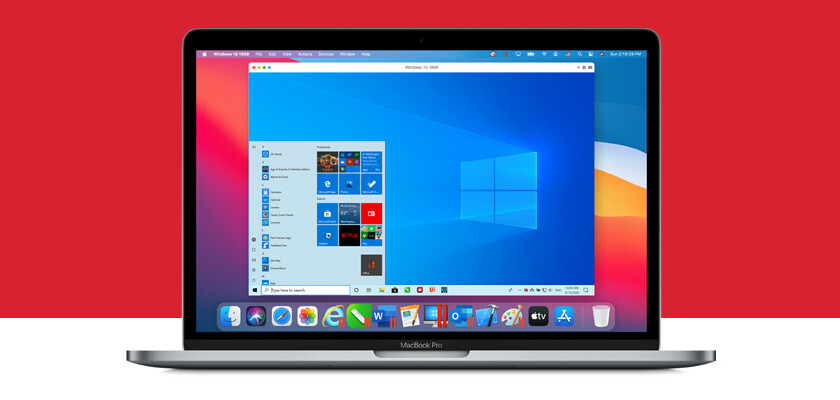A Mac with Windows? Yes, also in the most recent models, M1, with the new ARM chips that are being designed and manufactured by Apple itself.
Parallels has announced a new version of Desktop, the company’s desktop hypervisor for macOS. Thus, Desktop 16.5 offers a native version for Apple’s M1 chip.

Parallels ensures that this new version is for Windows 10 ARM Insider Preview and “The Most Popular ARM-Based Linux Distributionss. “The company does not offer a list of compatible Arm distributions, but does mention Ubuntu, Fedora, CentOS, Debian, and Mint Linux as options for version 16, in addition to Android VMs.
Performance improvements
According to data provided by Parallels itself, the improvement in virtual machine performance when running Windows 10 on ARM Insider Preview VM is up to 30 percent when compared to a Windows 10 x86 VM on a MacBook Pro with an Intel Core i9 processor.
The company also ensures that up to a 250 percent less energy and that DirectX 11 performance is up to 60 percent better.
Consistency mode is also supported, which means that Windows applications behave as if they were native macOS applications rather than requiring users to enter and exit a virtual machine.
Also, this hypervisor allow to use other resources and optionssuch as Shared Profile (allowing you to share your Mac desktop, pictures, documents, and other folders with a virtual machine for easy access); the touch bar controls; or Mac keyboard layouts.
Extensively tested
The company claims that Parallels Desktop 16.5 for Mac M1 tested on over 100,000 Mac M1 users.
All of them were able to run Windows 10 Insider Preview on ARM, as well as different Intel-based Windows applications, including Microsoft Office for Windows, Microsoft Visual Studio, SQL Server, Microsoft PowerBI, and MetaTrader.

This new version of Parallels can be a useful resource for those developers who use M1 and need a Windows desktop. It should be noted that all editions of the Parallels Desktop 16.5 update for Mac are compatible with Mac M1 and Intel machines (Standard Edition, Pro Edition y Business Edition).
VMware is expected to launch native M1 versions of its Fusion desktop hypervisor as well.
